Andrei Popescu
Advancing Algorithmic Approaches to Probabilistic Argumentation under the Constellation Approach
Jul 06, 2024



Abstract:Reasoning with defeasible and conflicting knowledge in an argumentative form is a key research field in computational argumentation. Reasoning under various forms of uncertainty is both a key feature and a challenging barrier for automated argumentative reasoning. It was shown that argumentative reasoning using probabilities faces in general high computational complexity, in particular for the so-called constellation approach. In this paper, we develop an algorithmic approach to overcome this obstacle. We refine existing complexity results and show that two main reasoning tasks, that of computing the probability of a given set being an extension and an argument being acceptable, diverge in their complexity: the former is #P-complete and the latter is #-dot-NP-complete when considering their underlying counting problems. We present an algorithm for the complex task of computing the probability of a set of arguments being a complete extension by using dynamic programming operating on tree-decompositions. An experimental evaluation shows promise of our approach.
Pegasus-v1 Technical Report
Apr 23, 2024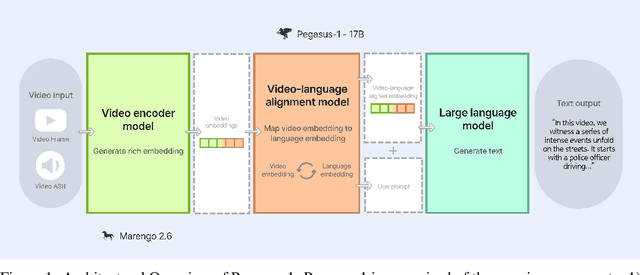
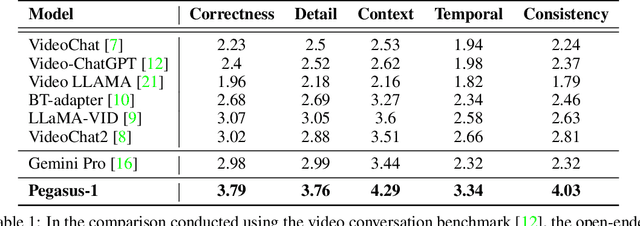

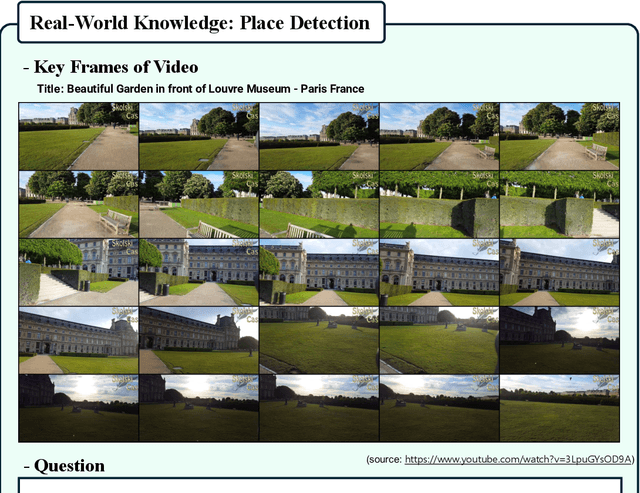
Abstract:This technical report introduces Pegasus-1, a multimodal language model specialized in video content understanding and interaction through natural language. Pegasus-1 is designed to address the unique challenges posed by video data, such as interpreting spatiotemporal information, to offer nuanced video content comprehension across various lengths. This technical report overviews Pegasus-1's architecture, training strategies, and its performance in benchmarks on video conversation, zero-shot video question answering, and video summarization. We also explore qualitative characteristics of Pegasus-1 , demonstrating its capabilities as well as its limitations, in order to provide readers a balanced view of its current state and its future direction.
Configuring Multiple Instances with Multi-Configuration
Sep 20, 2021Abstract:Configuration is a successful application area of Artificial Intelligence. In the majority of the cases, configuration systems focus on configuring one solution (configuration) that satisfies the preferences of a single user or a group of users. In this paper, we introduce a new configuration approach - multi-configuration - that focuses on scenarios where the outcome of a configuration process is a set of configurations. Example applications thereof are the configuration of personalized exams for individual students, the configuration of project teams, reviewer-to-paper assignment, and hotel room assignments including individualized city trips for tourist groups. For multi-configuration scenarios, we exemplify a constraint satisfaction problem representation in the context of configuring exams. The paper is concluded with a discussion of open issues for future work.
An Overview of Recommender Systems and Machine Learning in Feature Modeling and Configuration
Feb 12, 2021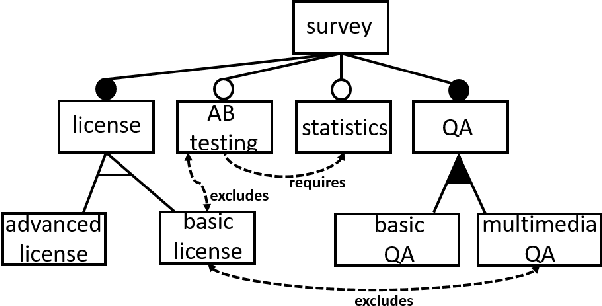
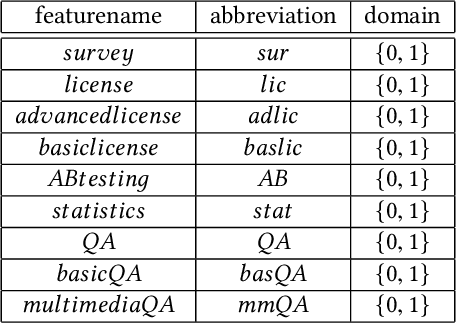
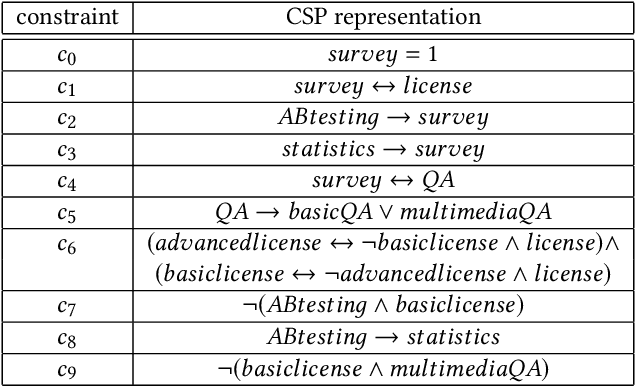

Abstract:Recommender systems support decisions in various domains ranging from simple items such as books and movies to more complex items such as financial services, telecommunication equipment, and software systems. In this context, recommendations are determined, for example, on the basis of analyzing the preferences of similar users. In contrast to simple items which can be enumerated in an item catalog, complex items have to be represented on the basis of variability models (e.g., feature models) since a complete enumeration of all possible configurations is infeasible and would trigger significant performance issues. In this paper, we give an overview of a potential new line of research which is related to the application of recommender systems and machine learning techniques in feature modeling and configuration. In this context, we give examples of the application of recommender systems and machine learning and discuss future research issues.
 Add to Chrome
Add to Chrome Add to Firefox
Add to Firefox Add to Edge
Add to Edge